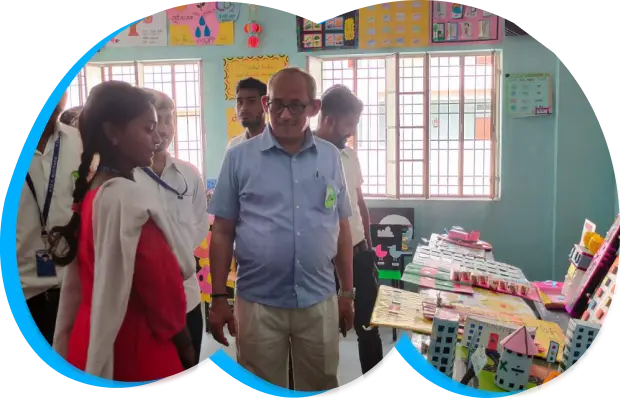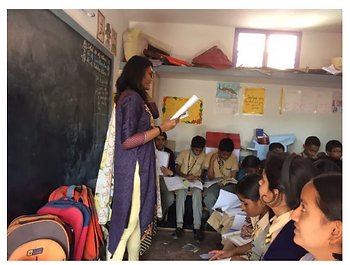Global Education Policy Landscape
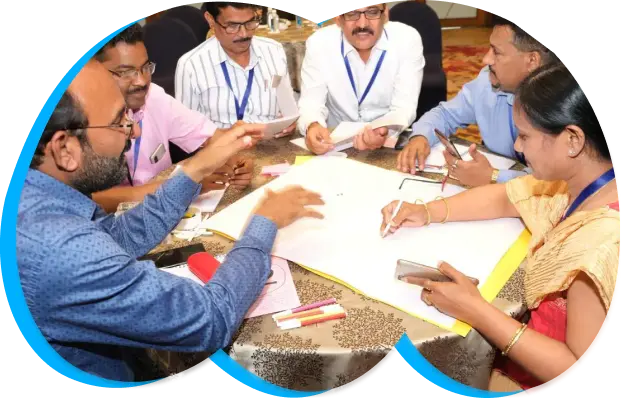
Instruments influencing and guiding Education Policy at the Global Level
Education policy refers to the underlying framework and discourse that shapes education at all levels. It encompasses the principles, laws, and regulations that govern the education system, influencing every aspect of learning. While global education policy instruments do not have binding effect as they are not enforceable in the conventional sense, they have a lot of value as soft law instruments that guide and influence the development of ‘education policy’ across the world.
Universal Declaration of Human Rights, 1948
Article 26 of the Universal Declaration of Human Rights, 1948 – “1. Everyone has the right to education. Education shall be free, at least in the elementary and fundamental stages. Elementary education shall be compulsory. Technical and professional education shall be made generally available and higher education shall be equally accessible to all on the basis of merit. 2. Education shall be directed to the full development of the human personality and to the strengthening of respect for human rights and fundamental freedoms. It shall promote understanding, tolerance and friendship among all nations, racial or religious groups, and shall further the activities of the United Nations for the maintenance of peace. 3. Parents have a prior right to choose the kind of education that shall be given to their children”.
International Covenant on Economic, Social and Cultural Rights, 1966
Article 13 of the International Covenant on Economic, Social and Cultural Rights, 1966 – “1. The States Parties to the present Covenant recognize the right of everyone to education. They agree that education shall be directed to the full development of the human personality and the sense of its dignity, and shall strengthen the respect for human rights and fundamental freedoms. They further agree that education shall enable all persons to participate effectively in a free society, promote understanding, tolerance and friendship among all nations and all racial, ethnic or religious groups, and further the activities of the United Nations for the maintenance of peace. 2. The States Parties to the present Covenant recognize that, with a view to achieving the full realization of this right: (a) Primary education shall be compulsory and available free to all; (b) Secondary education in its different forms, including technical and vocational secondary education, shall be made generally available and accessible to all by every appropriate means, and in particular by the progressive introduction of free education; (c) Higher education shall be made equally accessible to all, on the basis of capacity, by every appropriate means, and in particular by the progressive introduction of free education; (d) Fundamental education shall be encouraged or intensified as far as possible for those persons who have not received or completed the whole period of their primary education; (e) The development of a system of schools at all levels shall be actively pursued, an adequate fellowship system shall be established, and the material conditions of teaching staff shall be continuously improved. 3. The States Parties to the present Covenant undertake to have respect for the liberty of parents and, when applicable, legal guardians to choose for their children schools, other than those established by the public authorities, which conform to such minimum educational standards as may be laid down or approved by the State and to ensure the religious and moral education of their children in conformity with their own convictions. 4. No part of this article shall be construed so as to interfere with the liberty of individuals and bodies to establish and direct educational institutions, subject always to the observance of the principles set forth in paragraph I of this article and to the requirement that the education given in such institutions shall conform to such minimum standards as may be laid down by the State”.
Article 14 of the International Covenant on Economic, Social and Cultural Rights, 1966 – “Each State Party to the present Covenant which, at the time of becoming a Party, has not been able to secure in its metropolitan territory or other territories under its jurisdiction compulsory primary education, free of charge, undertakes, within two years, to work out and adopt a detailed plan of action for the progressive implementation, within a reasonable number of years, to be fixed in the plan, of the principle of compulsory education free of charge for all”.
Convention on the Rights of the Child, 1989
Article 28 of the Convention on the Rights of the Child, 1989 – “1. States Parties recognize the right of the child to education, and with a view to achieving this right progressively and on the basis of equal opportunity, they shall, in particular: (a) Make primary education compulsory and available free to all; (b) Encourage the development of different forms of secondary education, including general and vocational education, make them available and accessible to every child, and take appropriate measures such as the introduction of free education and offering financial assistance in case of need; (c) Make higher education accessible to all on the basis of capacity by every appropriate means; (d) Make educational and vocational information and guidance available and accessible to all children; (e) Take measures to encourage regular attendance at schools and the reduction of drop-out rates. 2. States Parties shall take all appropriate measures to ensure that school discipline is administered in a manner consistent with the child’s human dignity and in conformity with the present Convention. 3. States Parties shall promote and encourage international cooperation in matters relating to education, in particular with a view to contributing to the elimination of ignorance and illiteracy throughout the world and facilitating access to scientific and technical knowledge and modern teaching methods. In this regard, particular account shall be taken of the needs of developing countries”.
Article 29 of the Convention on the Rights of the Child, 1989 – “1. States Parties agree that the education of the child shall be directed to: (a) The development of the child’s personality, talents and mental and physical abilities to their fullest potential; (b) The development of respect for human rights and fundamental freedoms, and for the principles enshrined in the Charter of the United Nations; (c) The development of respect for the child’s parents, his or her own cultural identity, language and values, for the national values of the country in which the child is living, the country from which he or she may originate, and for civilizations different from his or her own; (d) The preparation of the child for responsible life in a free society, in the spirit of understanding, peace, tolerance, equality of sexes, and friendship among all peoples, ethnic, national and religious groups and persons of indigenous origin; (e) The development of respect for the natural environment. 2. No part of the present article or article 28 shall be construed so as to interfere with the liberty of individuals and bodies to establish and direct educational institutions, subject always to the observance of the principle set forth in paragraph 1 of the present article and to the requirements that the education given in such institutions shall conform to such minimum standards as may be laid down by the State”.
United Nations Sustainable Development Goals, 2030
UN-SDG-4 – “Ensure inclusive and equitable quality education and promote lifelong learning opportunities for all”.
Implications of global education policy instruments on India’s education policy
The Constitution of India, mandates pursuant to Article 51 that “The State shall endeavour to— (a) promote international peace and security; (b) maintain just and honourable relations between nations; (c) foster respect for international law and treaty obligations in the dealings of organised peoples with one another; and (d) encourage settlement of international disputes by arbitration”. While the obligation on the government is only to endeavor to adhere/comply with international laws and policies, it still reflects a commitment by the Indian government to respect and uphold international law (specifically those instruments that it has ratified).
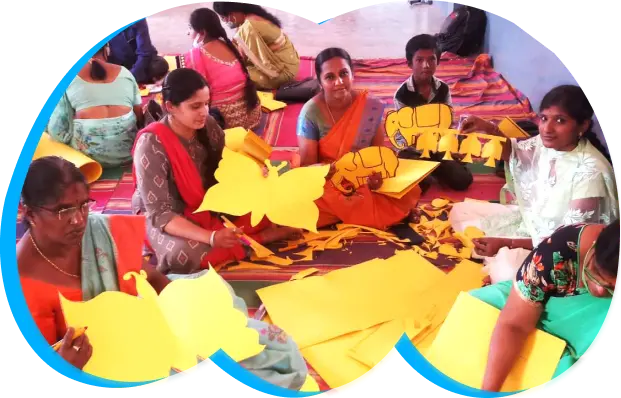
Our Thought Leadership on Education Policy
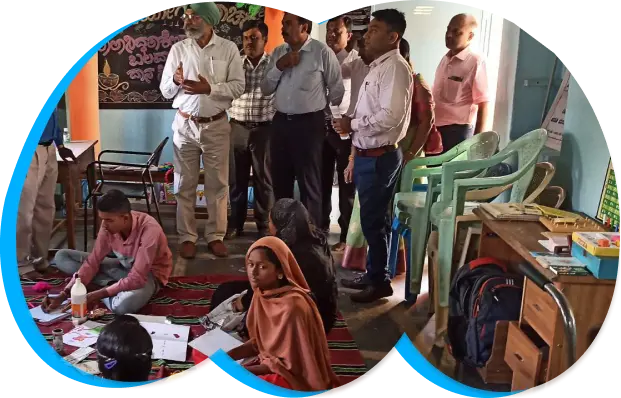
About the Public Policy vertical
The Public Policy Vertical at Mantra4Change is a dedicated initiative focused on driving informed decision-making in education policy. We aim to leverage research, data, and insights to promote evidence-based reforms in the education sector. Our work will involve generating extensive thought leadership on education-related laws and policies, participating in pre-legislative consultative processes, advocating for policy reforms, stakeholder mapping and thereafter conducting workshops to facilitate stakeholder consultations. By doing so, we hope to create a meaningful impact and drive positive change in the education space.
Education policy is a critical area that requires informed decision-making to ensure that it benefits students, educators, and the broader community. The complexity of education policy issues demands a thoughtful and evidence-based approach, which is why our vertical is dedicated to providing actionable insights and analysis to inform policy decisions. By working in this space, we aim to contribute to the development of effective policies that support the growth and development of the education sector.
Want to help build India’s education policy?
If you are interested and would like to support our work, we are currently recruiting interns for the Public Policy vertical.
Click here to know more, and apply now!
If you are an organisation that is also working in the education policy space and would like to explore some collaborative projects, please feel free to write to Abhishek Jain (Head, Public Policy at Mantra4Change) at abhishek@mantra4change.com
